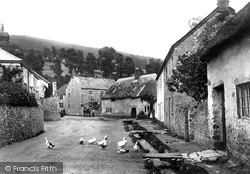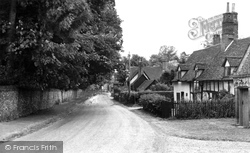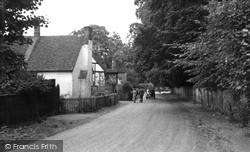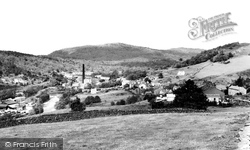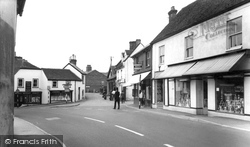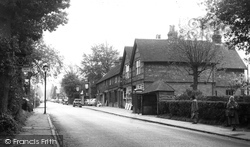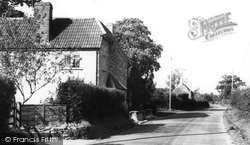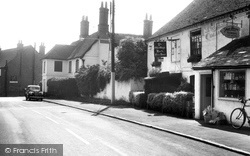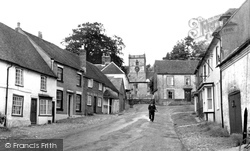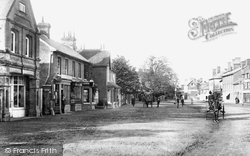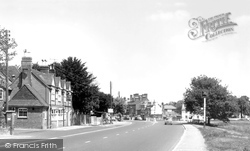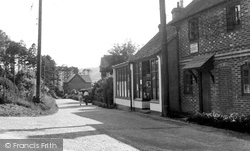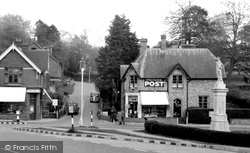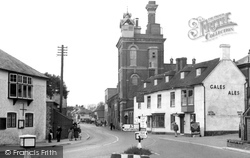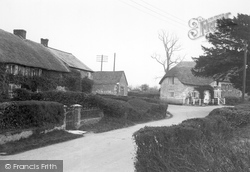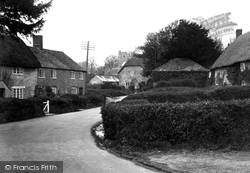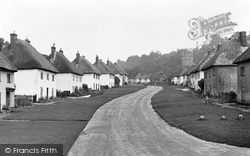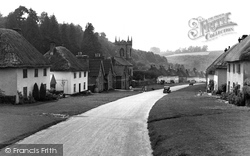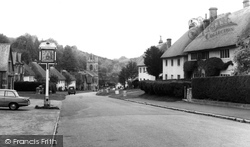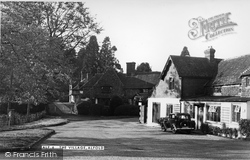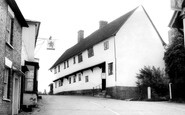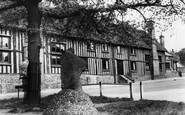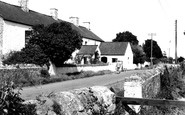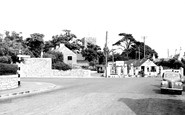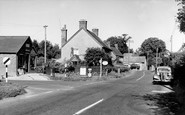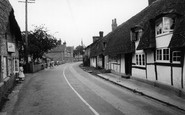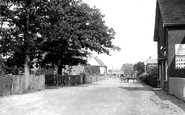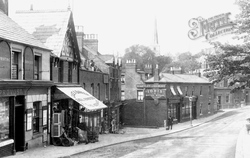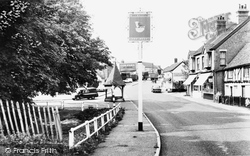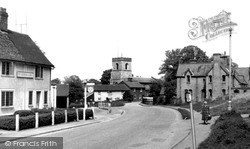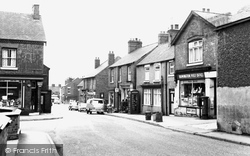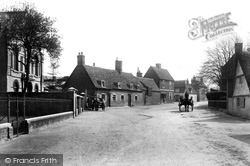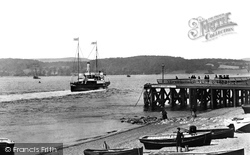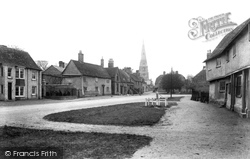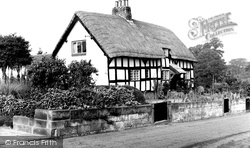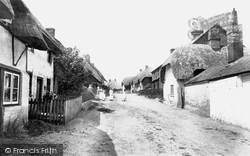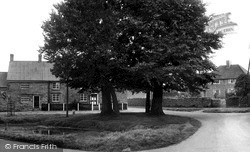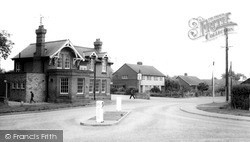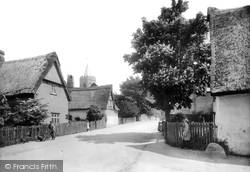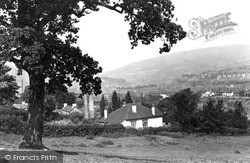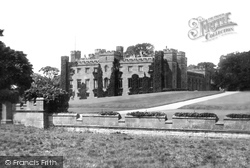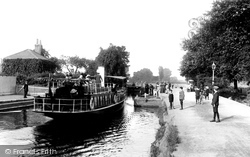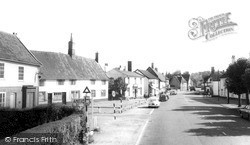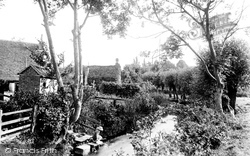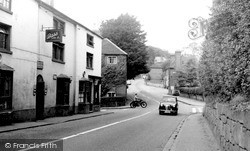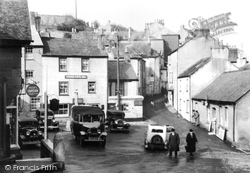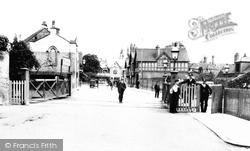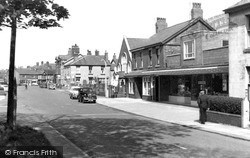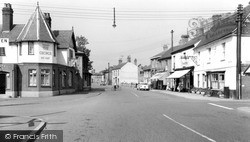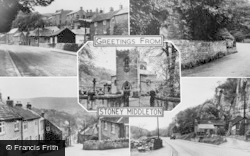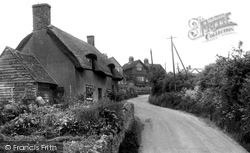Places
5 places found.
Those places high-lighted have photos. All locations may have maps, books and memories.
Photos
9,649 photos found. Showing results 401 to 420.
Maps
18 maps found.
Books
13 books found. Showing results 481 to 13.
Memories
4,612 memories found. Showing results 201 to 210.
In My Day
In my days in the village I recall the upstairs room of the Guildhall having a snooker table where the men used to gather, this would be shortly after the war. Of more interest to me was the Library that was situated downstairs. As ...Read more
A memory of Finchingfield in 1950 by
Many Memories
I went to the school here. Mrs Foster was my Teacher and Mr Pritchard was the Head Master. We would cross the road to the village hall for Dinner. I vaguely remember having music lessons in the hall too (We all had recorder ...Read more
A memory of Standon by
Growing Up In Cold Ash
I spent the early years of my life in Cold Ash and Thatcham. We lived in a detached house on Cold Ash Hill called Midway. I believe it has since been renamed. The house was built by my grand father Alfred Gadd, the carpenter, ...Read more
A memory of Cold Ash by
Hammett's Farm.
This building was known to us as Hammett's Farm, properly West Orchard Farm, in the Higher End area of St Athan. Arthur Hammett and his wife ran the farm and I occasionally helped to deliver milk from the farm around the village from ...Read more
A memory of St Athan
Mustow's Cafe.
I lived with my family in St Athan village from the time of my first birthday in 1946 to my marriage in 1970. My wife and I were married at the church shown in the photograph. The church is dedicated to an Irish saint by the name of ...Read more
A memory of St Athan by
The Central Stores.
My parents ran the Central Stores from 1951 to 1955, their names were Tony and Eunice Jeanes. The date of c1955 is about right as this was the year that my father and mother sold the business to Mr Dean, whose sign appears ...Read more
A memory of Shillingstone by
Fondest Memories Of Gt Oakley 1938 To 1961
That was when I was born along with a bunch of other kids who grew up with me and with whom I played during the WW2 years and eventually went to C of E school together. Mr Porter was a teacher there, ...Read more
A memory of Great Oakley by
Scene Of High Street, St. Mary Bourne, Hampshire
This photograph shows the thatched house of Mr and Mrs Hansford on the right, on the opposite side of the road to the village stores owned by Roy and Ruth Wells. In the centre of the picture, in ...Read more
A memory of St Mary Bourne in 1955 by
My Banbury Grans Village
My grandmother's name was Amelia Gough and she lived in the second cottage on the right at the bottom of the green on the road to Mollington. Water was collected by bucket over the road from a tap in the vicarage wall. ...Read more
A memory of Warmington in 1940 by
Society Farm
In 2001 my husband Derek and I visited Assington. We had been researching Derek's family history, and had discovered that his great-great-grandfather John Crisell was the bailiff, in the middle of the 19th century, at Society Farm, ...Read more
A memory of Assington in 2001 by
Captions
5,016 captions found. Showing results 481 to 504.
This photograph was taken from almost exactly the same viewpoint as one to be seen later taken in 1960; it is very much apparent that at this time the village was a thriving, almost self-sufficient commercial
The memorial was built in 1881 as a protection over the village well. The main benefactor was Granville Dudley Ryder.
The village of Norton dates from the Saxon period. One of the earliest references to Norton is a grant by Offa of Mercia to the monastery at St Albans.
Brimington is one of a number of similar former coal mining villages to the east of Chesterfield, and today villages like this are seeking a new identity.
The man with the horse and cart on the left is at the village pump, which is situated in front of the Methodist Chapel.
A ferry crosses the Exe from here to the village of Starcross on the opposite bank.
The village of Spaldwick lies at the centre of a medieval estate which included most of the neighbouring settlements. The church in the background is known as 'the cathedral of the valley'.
Bunbury has been described as 'a village that the commuter has found but not spoilt', and it has a delightful mixture of buildings of all periods.
This village lies at the confluence of the River Anton and the Pillhill brook.
This view puts the old Crown Inn into context.
Peering over the thatched roof is the battlemented octagon of the village church, rebuilt after two collapses in the 18th century.
Peering over the thatched roof is the battlemented octagon of the village church, rebuilt after two collapses in the 18th century.
This photograph gives us some idea of the rural setting for this village, something of a constrast to the dense housing of the village itself.
The palace was designed by William Atkinson. Work began in 1803 and finished in 1808.
The merging of the village into the borough of Reading was strongly resisted by the residents of Caversham.
The name means simply 'long street', and the village is spread along the main road, originally the Roman road running from London to Caistor St Edmund, the Roman town just south of Norwich.
This photograph captures the atmosphere and feel of the village around the turn of the century. Sir John Soane, who rebuilt the Bank of England, was born here.
Along with Great Haywood, this village was where the inhabitants of Shugborough were relocated, as their own village was gradually absorbed into the parkland surround- ing Shugborough Hall.
The twin villages of Cawsand and Kingsand nestle into the hills on the west of Cawsand Bay; they were once, like so many Cornish villages, a centre for smugglers.
The railway at Datchet runs between the Thames and the village centre. Datchet is mentioned in Shakespeare's 'Merry Wives of Windsor' and Jerome K Jerome's 'Three Men in a Boat'.
An idea to rename this village St Bernard's-on-Sea in 1893 failed. The villagers would not accept it, although it was a valiant attempt to turn this Over-Wyre village into a popular watering place.
Somersham stretches for about a mile along a kink in the road between St Ives and Chatteris. The village was once celebrated for its mineral spa.
Completely overlooked by the towering limestone cliffs of Middleton Dale, the village church of Stoney Middleton is one of the few completely octagonal churches in England.
The name of the village is Saxon and means 'Hill of Cuthwine.' From the churchyard there are wonderful views across the plain of Oxford to the Chilterns beyond.
Places (5)
Photos (9649)
Memories (4612)
Books (13)
Maps (18)


